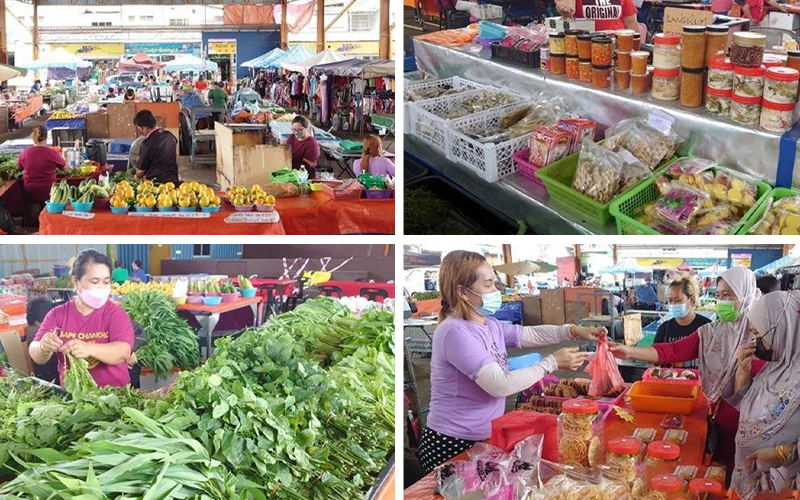
PETALING JAYA: Rovenny Elshera Ronald, 23, a Sabahan in Johor, works from 10am until 5pm, five days a week as a waitress, Sometimes she even takes on the night shift and additional overtime to bump up her pay packet.
As the eldest of four siblings, she moved to Johor to support her family’s needs back in Kota Marudu. The rising cost of living has made it challenging for them to afford even half of the necessary things they need to get by.
“My younger siblings need to take transport to go to school but it is costlier now due to the rising oil prices.
“My parents also need money for medical expenses, so they can get regular check-ups and medication,” Rovenny told FMT.
Rovenny is among the 200,000 Sabahans who have come to work in West Malaysia, driven by a sagging economy in their home state and few job opportunities. A significant proportion of them, like Rovenny, take blue-collar jobs.
Kasmin Danil, 26, who works as a technician in Petaling Jaya, believes Sabahans seek job opportunities in West Malaysia because of higher pay and the more structured employment landscape.
“The working week in Sabah is 48 hours long but here in West Malaysia it is 45 hours. The wages in Sabah are low, with many people still paid RM1,200 per month,” Kasmin said.
“I choose to work here because I can apply my expertise, especially in engineering. I can interact and work together with different people, and gain different perspectives to boost my understanding and skills,” Ranau-born Kasmin said.
Hazizin Jimin, 27, a factory worker in Penang, also said he has more opportunities to earn a better salary.
“However, if Sabah undergoes substantial development, such as opening new factories or industries, it would be worth considering applying for work there, especially if it’s closer to home,” Hazizin said.
Rovenny, Hazizin, and Kasmin said they were relieved to know that Sabahan workers will finally be granted the same rights as their counterparts in West Malaysia, as the government inches its way towards standardising basic employment rights across the country.
Last week, deputy human resources minister Mustapha Sakmud said he hoped to have the amendment to the Sabah Labour Ordinance completed before the end of the year.
Amendments include maternity leave increasing to 98 days and paternity leave increased from three to seven days.
Warisan vice-president Junz Wong said the ordinance should have been amended long ago.
“The situation changes over time and there’s always a need to keep looking at the current policy for more improvements to suit the ever-changing working environment,” Wong told FMT.
However, Rovenny, Hazizin, and Kasmin said they are committed to working in West Malaysia because their incentive to stay is primarily economic.
Rovenny said she earns enough in Johor to support her family back in Sabah.
“As I have been working here for a while, I have become accustomed to the salary. If I were to return to Sabah, it would upset the family budget and we would have less,” Rovenny said.
To entice Sabahans to return home, Wong suggested utilising the state’s natural resources for downstream industrialisation to generate more jobs and stimulate economic growth.
Alan Khoo, from the Sabah Employers Consultative Association, said the government needs to create more job opportunities in Sabah.
“We count on the plantation sector here, but locals just refuse to take on the dirty, difficult and demeaning jobs in this sector. Therefore, we need more western companies to come here and create more job opportunities,” he said.
He said Sabahans who move away are leaving for better opportunities elsewhere. - FMT


No comments:
Post a Comment
Note: Only a member of this blog may post a comment.